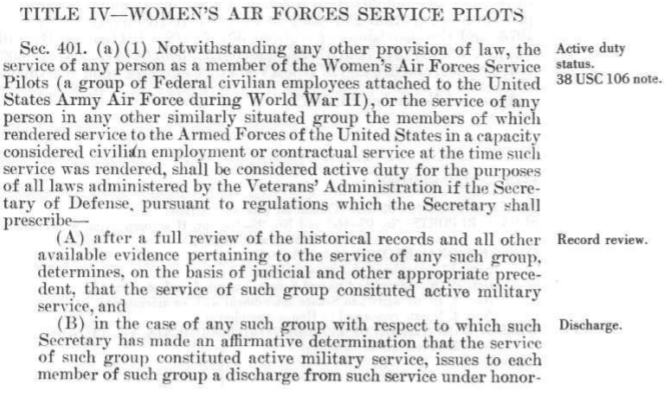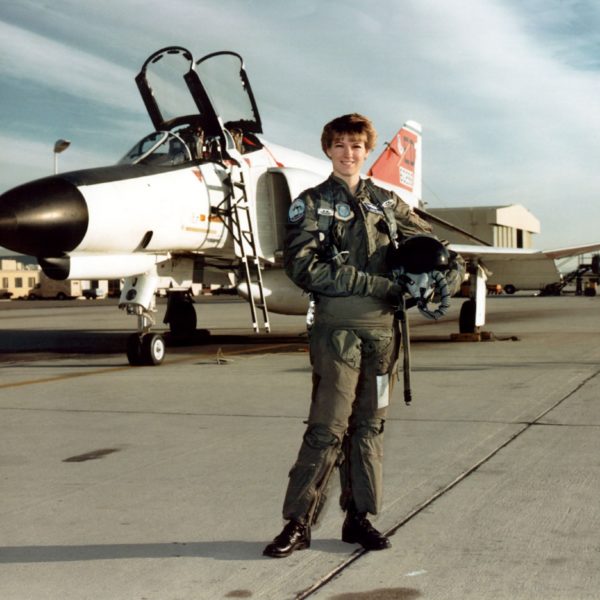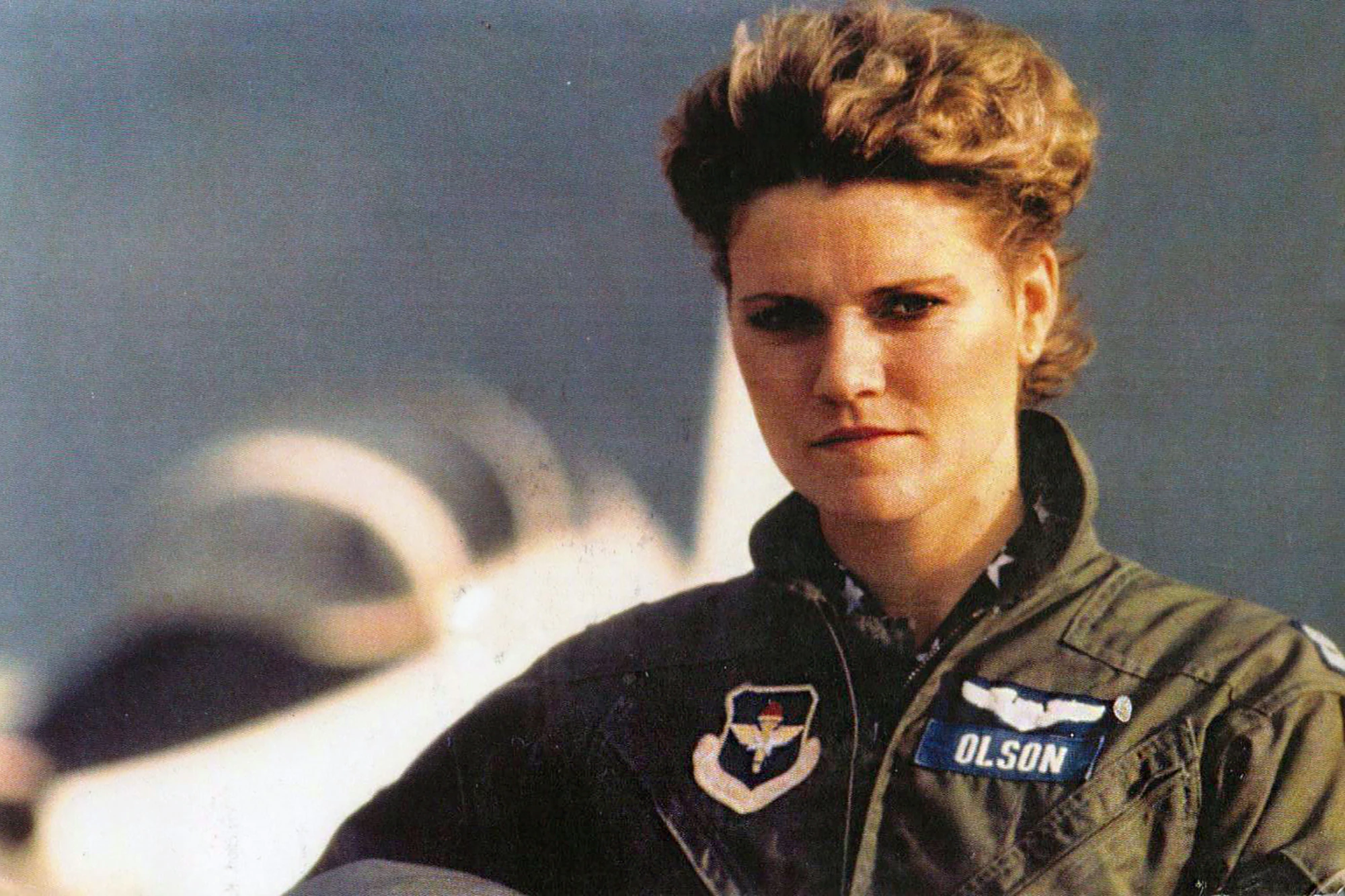Jacqueline Cochran
National History Day 2022
Debate and Diplomacy
Long Term Effects
Even though there was debate surrounding their work, the WASPs did not step down. Jacqueline Cochran continued the fight for military recognition, and was able to finally obtain it, while also becoming a role model for future women. Although they had to fight to be recognized, diplomacy was reached when the WASPs obtained military status, putting all of the debate to rest.
The Fight For Recognition
For decades the WASPs fought to be given proper recognition for their contributions to the military during World War II. It was not until 1977 that the WASPs were given proper military recognition recognized as veterans, with President Jimmy Carter signing it into law after two years of lobbying for it in Congress.
"Notwithstanding any other provision of law, the service of any person as a member of the Women's Air Forces Service Pilots (a group of Federal civilian employees attached to the United States Army Air Force during World War II) , or the service of any person in any other similarly situated group the members of which rendered service to the Armed Forces of the United States in a capacity considered civilian employment or contractual service at the time such service was rendered, shall be considered active duty for the purposes of all laws administered by the Veterans' Administration if the Secretary of Defense, pursuant to regulations which the Secretary shall prescribe—" - GI Bill Improvement Act of 1977

GI Bill Improvement Act of 1977 giving WASPs military status.
The Impact of the WASPs
Many women aviators were impacted by the work of the WASPs. Their efforts inspired future generations of women to face challenges head on, despite their status as women in society.
Terry London Rinehart was hired as one of the first ten women who were commercial airline pilots. She attributed her ability to succeed in this field of work to the WASPs, stating that their accomplishments allowed her to have more confidence in herself when pursuing this career.
Terry Rinehart speaking about her mother, a WASP, and the inspiration she has provoked.
"The WASP were and still are my role models" - Colonel Eileen Collins, USAF (retired), NASA Astronaut

Colonel Eileen Collins. Courtesy of Foundation For Women Warriors.
"The historical data they needed to prove that women could fly and be successful. Without the WASP we wouldn't be here” - Colonel Kimberly Olson, a participant in one of the first co-ed Air Force Training classes

Colonel Kimberly Olson. Courtesy of Air Education and Training Command.